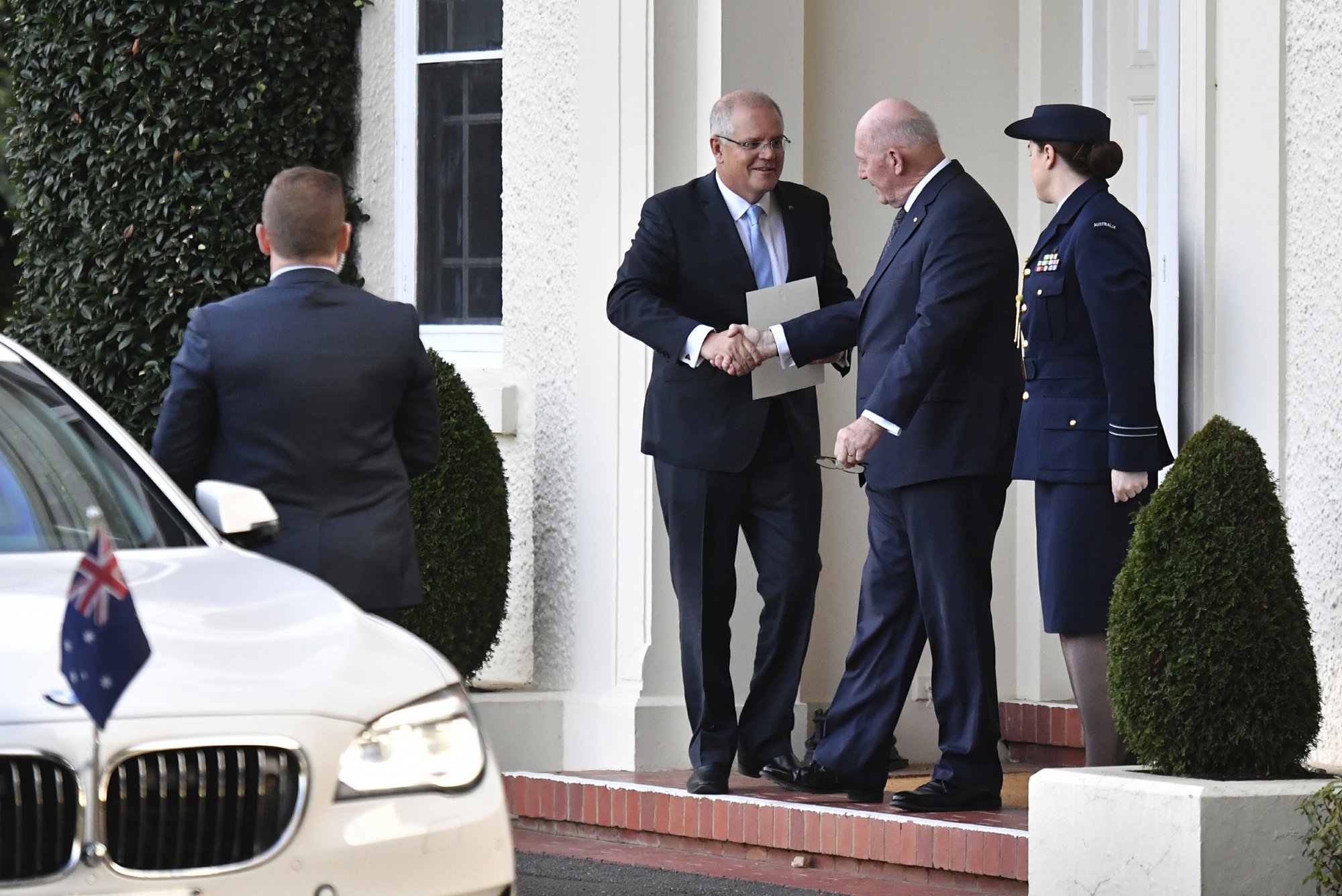
Australian Prime Minister Scott Morrison, second left, shakes hands with Governor General Peter Cosgrove as he leaves Government House in Canberra, Thursday, April 11, 2019. (File photo: AP)
The Australian federal election will be held on May 18 to elect members to the 46th parliament.
A total of 151 seats in the House of Representatives and 40 of the 76 seats in the Senate will be up for election. The party that wins more than half the seats in the House of Representatives will come to power, with its leader becoming the country's prime minister.
Support for different political parties in the run up to the election remains uncertain. Recent polls suggest that the Labor Party led by Bill Shorten is ahead of the ruling Liberal-National Coalition led by incumbent Prime Minister Scott Morrison.
If the Labor Party prevails and wants a stable government, it should make decisions based on national interest rather than pandering to external forces. Hence, if in power, Labor is very likely to change the country's foreign policy to distinguish itself from the Coalition.
First, Australia's China policy might be slightly changed. Many of the current government's policies are tough on China, and there may be a chance of improved China-Australia relations if Labor comes to power.
Australia is well aware of the fact that China has deep economic and trade ties with the country. China is Australia's largest trading partner in terms of both imports and exports. One third of Australia's exports are sold to China and this will remain so in the future.
Although Australia is the first country among the Five Eyes to exclude Huawei from its 5G network rollout, this special case cannot represent Australia's overall economic policy toward China.
Huawei has already been labeled. This case, which is related to Australia's support for the US as well as the so-called national security threat that Australia felt, has become a sensitive issue. But Australia is still willing to promote other economic cooperation projects with China. And even if the federal government regards Huawei a threat, many local authorities are willing to deepen cooperation with China.
On the whole, it's unlikely that future China-Australia ties will continue to deteriorate, and there could be a turn for the better if Australian government could realize stable governance.
Second, uncertainty in Australia's policy toward the US continues unabated.
Australia regards its alliance with the US as the basis for the country's international recognition and international standing, despite that Canberra has many complaints about the US.
Australia maintains its partnership with the US lest it be marginalized in the international arena and not taken seriously in international relations.
Not a very pro-US party, Labor might change Australia's attitude toward Washington if it comes to power. Besides, it should weigh the effects of close Australia-US relations, which have not helped Canberra a great deal.
There has been constant speculation about China's "interference" in Australian elections. Certain security experts even warned that China could spread propaganda in the elections through popular social networking platform WeChat.
Such remarks are simply nonsense. WeChat is merely a channel of communication. Morrison himself joined WeChat earlier in 2019.
No matter how much Washington throws its weight around, some Australians are not at all concerned about the US. But when it comes to China, they start to feel uneasy as Beijing exercises some influence. This reflects their lack of confidence.
Due to Australia's unstable political environment and the government's ineffective response to socio-economic challenges in recent years, doubts have been cast on the effectiveness of the democratic system. Hence, some conservatives hold that China's political system has posed a certain threat to Australia. It is also a reflection of Australia's lack of confidence in its own system.


